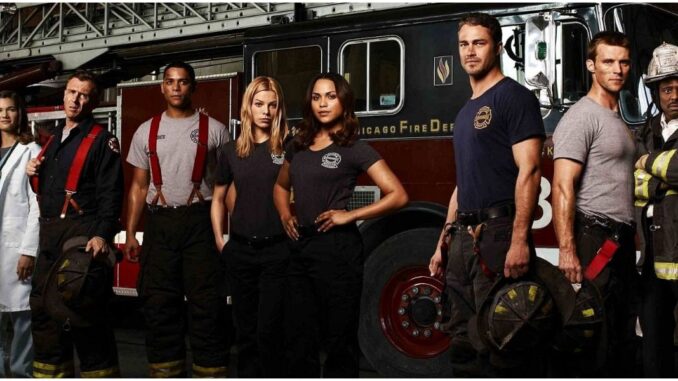
The flickering blue light of a television screen casts shifting shadows across the worn recliner. In it sits a man whose calloused hands have gripped the cold steel of an axe, whose lungs have tasted the acrid bite of burning plastic, and whose eyes have witnessed the raw terror of a house ablaze. He is a firefighter, not of the fictional Squad 3, but of a real firehouse in a real city, and on the screen, Chicago Fire is unfolding its "most intense rescue yet."
For the uninitiated, Chicago Fire is a high-octane ballet of chaos and courage, where heroic figures charge into impossible infernos, saving lives against overwhelming odds. But for those who live the reality of the alarm bell, the show is a complex mirror, reflecting their world through a funhouse lens – sometimes accurate, often exaggerated, always dramatic. As the on-screen inferno rages, trapping a family in a collapsing building, the real firefighter leans forward, a blend of appreciation and critical scrutiny etched on his face.
First, there's the grudging respect for the spectacle. The show gets the feeling right. The sheer urgency of the scene, the blare of sirens, the orchestrated chaos of multiple units converging. He remembers the adrenaline surge, the primal need to act when every second counts. He sees the camaraderie, the unspoken language between the characters, and nods. That, at least, is genuine. The bond forged in the crucible of shared danger, the implicit trust that someone always has your back – Chicago Fire often nails that sacred brotherhood.
But then, the professional eye begins its relentless scan. A crew member runs into the smoke without his SCBA mask fully sealed, or worse, without it at all. A gasp of exasperation escapes. "No mask? Seriously?" he mutters, shaking his head. The show sacrifices safety protocols for dramatic effect, often portraying near-superhuman feats without the mundane, life-saving layers of redundancy and caution that define real-world firefighting. He notices the unfastened chin straps, the casual disregard for command structure, the single individual miraculously pulling someone twice their size through a blazing inferno with no visible support. In reality, such an "intense rescue" would be a meticulously coordinated effort, with accountability tags, rapid intervention teams on standby, and every movement a calculated risk, not a spontaneous, death-defying sprint.
Yet, beneath the cinematic sheen and procedural liberties, the show strikes a nerve. As the fictional firefighters pull the charred, unconscious child from the debris, the real firefighter feels a familiar pang in his chest. It’s not the unrealistic speed or the lack of proper ventilation; it's the result. The faces of the distraught parents, the raw vulnerability of the victim, the collective sigh of relief when life triumphs over destruction – these moments resonate with an unsettling accuracy. He remembers the smell of singed hair, the weight of a limp body in his arms, the silent prayers whispered into the roar of the flames. The show, for all its dramatization, reminds him of the profound "why" – why he runs toward the danger others flee, why he dedicates his life to mastering the unpredictable language of fire.
The most intense rescue on Chicago Fire isn't just about the physical danger; it’s about the emotional toll. The fictional crew might share a celebratory beer afterward, but the real firefighter knows the silent moments that follow, the replay of every detail, the nagging questions of what could have been done better. He knows the images that burrow deep into the mind, lingering long after the last ember has cooled. He sees the PTSD that often goes unspoken, the burden of responsibility that never truly lifts. The show touches on these themes, but often glosses over their profound and lasting impact.
So, as the credits roll and the dramatic music swells, the real firefighter leans back, a complex expression on his face. He appreciates the inspiration the show offers, the way it shines a spotlight on a demanding and often misunderstood profession. He understands that it’s entertainment, a fantasy that allows civilians to glimpse the edge of chaos from a safe distance. But he also recognizes the thin veil between that fantasy and the brutal, beautiful, exhausting truth of his own existence. Chicago Fire's "most intense rescue yet" might be a thrilling ride for millions, but for him, it's a poignant, flawed echo of a life lived on the front lines, where every rescue, intense or not, is a testament to unwavering courage, unscripted skill, and the very real human heart beating beneath the fire-resistant turnout gear.
